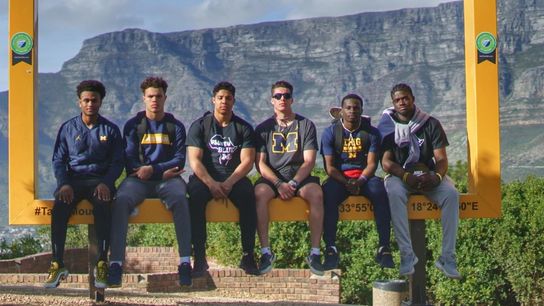For many college students, traveling abroad is an essential part of the college experience. This does not apply for college football players, for obvious reasons, but it does apply for college basketball players. In fact, basketball players travel abroad at a higher clip than the rest of the student body.
NCAA rules allow teams to take overseas trips once every four years, and plenty take advantage of it. Stadium's Jeff Goodman on Monday published a list of 56 Division I basketball teams traveling abroad this summer; plenty of rich schools (Texas A&M, USC) will pack their bags this summer, but the bulk are middle-class programs like, say, Illinois State (Italy, Aug. 7-17), North Florida (Vancouver, Aug. 2-8) and Oakland (Aug. 22-Sept. 2, Greece).
Now, there are plenty of reasons why basketball teams travel and football teams don't. It's far less expensive to ship 30 people to Greece than 150. Football is an equipment-dependent sport; basketball is not. Almost all the basketball trips take place over the month of August; football teams are, uh, occupied with other things at that time.
There is an exception to this rule, though, and it's one that's worth examining.
Michigan is currently in South Africa, the fourth installment of what has become an annual tradition under Jim Harbaugh. The Wolverines spent spring break of 2016 practicing at IMG Academy in Florida in 2016, then went to Italy in 2017. That trip included some football practices, but Michigan left the pads behind when they went to France last spring, as they did for this year's South African expedition.
This time of year works for the Wolverines, a rare ebb in the constantly-flowing schedule that is life of a major college football program. Final exams for Michigan's 2019 winter term ended May 2, and the Wolverines departed for Cape Town that same evening.
Michigan's trips funded by a pair of donors; the Italy trip of 2017 cost between $750,000 and $800,000, but that included the cost to ship football equipment back and forth across the Atlantic. Michigan is one of the richest programs in college football with an army of rich donors, sure, but overseas football trips are not just limited to the sport's 1 percent. Drake took visited Tanzania for a 15-day part football, part educational trip in 2011. At the high school level, Ashland (Oregon) travels to Japan every other year as part of an ongoing game against the Japanese all-star team. There are a million reasons for college football programs not to travel overseas. It's expensive. It's inconvenient. Spring recruiting is in full swing. The new recruiting calendar puts official visitors on campus throughout the spring. Players deserve time away from their football programs, and May is one of those rare times. It's expensive. Again, plenty of objections, all of them valid. And yet, there are plenty of reasons to go, too. It's a team-building exercise unlike any other. It's an educational experience of a lifetime, a hallmark of the Michigan football experience for the players. While everyone else lays low in the downtime between spring football and summer workouts, Michigan players are visiting Nelson Mandela's prison.
It's not possible for every program to match Michigan's extended field trips, and certainly not every year. But it'd be great if they could.
